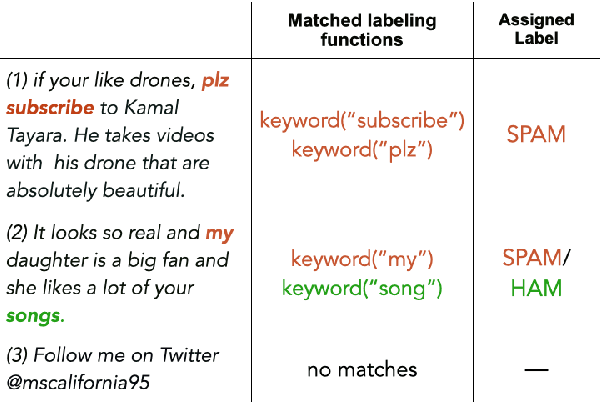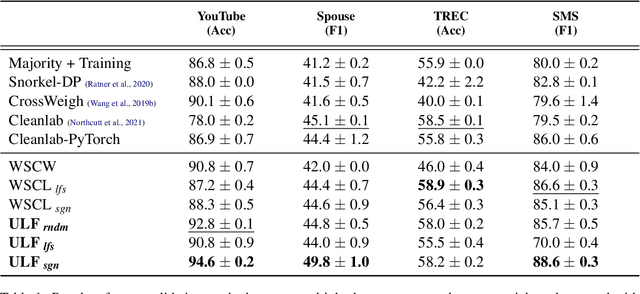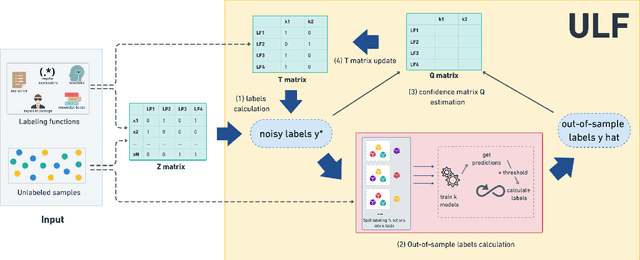ULF: Unsupervised Labeling Function Correction using Cross-Validation for Weak Supervision
Paper and Code
Apr 14, 2022



A way to overcome expensive and time-consuming manual data labeling is weak supervision - automatic annotation of data samples via a predefined set of labeling functions (LFs), rule-based mechanisms that generate potentially erroneous labels. In this work, we investigate noise reduction techniques for weak supervision based on the principle of k-fold cross-validation. In particular, we extend two frameworks for detecting the erroneous samples in manually annotated data to the weakly supervised setting. Our methods profit from leveraging the information about matching LFs and detect noisy samples more accurately. We also introduce a new algorithm for denoising the weakly annotated data called ULF, that refines the allocation of LFs to classes by estimating the reliable LFs-to-classes joint matrix. Evaluation on several datasets shows that ULF successfully improves weakly supervised learning without using any manually labeled data.
 Add to Chrome
Add to Chrome Add to Firefox
Add to Firefox Add to Edge
Add to Edge